Header image credit: Rik Bauters
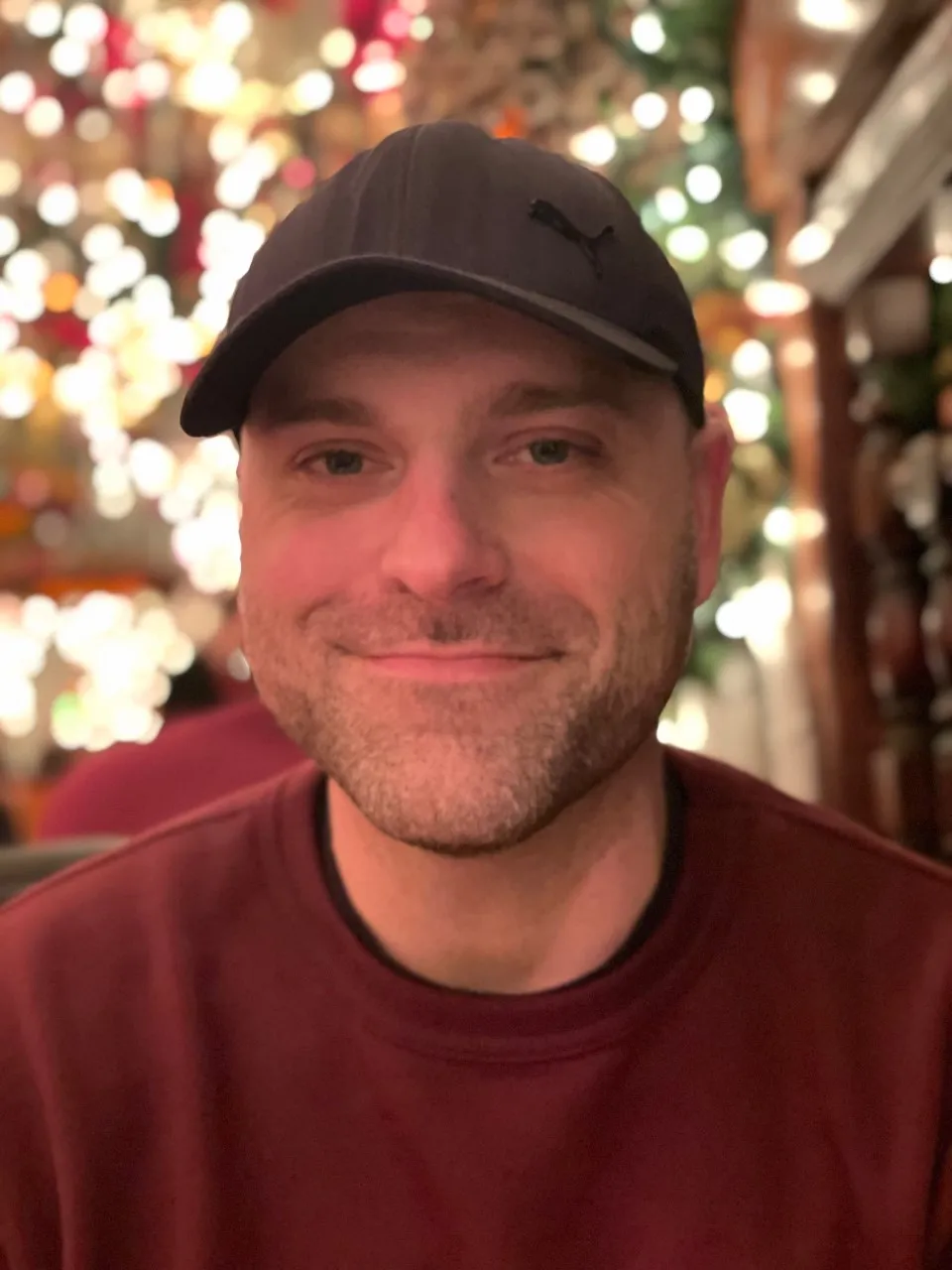
By Andrew Daly
andrew@vinylwriter.com

Jean Beauvoir’s career in music is one which speaks to hard work, diversity, and immense talent.
To that end, Jean is something of a nomad, with unparalleled vision, and a keen ear for melody, which has seen the veteran bassist lend his songsmith to multitudes of generational talents such as The Plasmatics, Little Steven, KISS, The Ramones, and more.
For those in the proverbial “know,” it’s plain to see that Beauvoir has done more than simply contribute to the rock ‘n’ roll zeitgeist, no, in many ways he has helped shape, if not define it through multiple avenues, over the course of many successful years.
Recently, I sat down with the amiable four-stringer, where among other things, we touch on his origins, his legacy with the ever-influential Plasmatics, working with Gene Simmons and Paul Stanley, assisting in penning and producing The Ramones’ most commercially successful track, and a whole lot more.
Andrew:
Thanks for carving out a slice of your time, Jean. Let’s dig right in. What are your earliest memories of music and the bass guitar?
Jean:
My brother had a Fender Jazz Bass that he was learning on. When he wasn’t home, I’d go into his room and borrow it to start playing along to all my favorite songs. I had started with drums before that, but this was an exciting time for me to get into, and play music. I guess I was about thirteen at this point.
Andrew:
What was the moment which first gravitated you toward punk and heavy metal?
Jean:
Heavy metal started first, where I’d play along to KISS, Eric Clapton, Deep Purple, Led Zeppelin, etc. Reading an article about Led Zeppelin, jetting around the world, was probably what intrigued me the most, and then seeing KISS perform. For punk, this came later. When I was about eighteen, my apartment building burnt down in New Jersey, leaving me homeless. For some reason, I gravitated toward the lower East Side of Manhattan, where the punk movement was in full force. That’s what led me to join my first punk band called N.Y.N.
Andrew:
Take me through some of your early gigs leading up to you joining The Plasmatics.
Jean:
I had played quite a few gigs by the time I joined The Plasmatics. Firstly, with my own band Topaz as a young teenager, and then at fifteen, I had already toured the US with Gary US Bonds, Chuck Berry, Bo Didley, and a number of other well-known oldies acts doing the Dick Clark circuit. Some gigs that stood out were the Playboy club in Chicago (I believe), Nassau Coliseum with The Flamingos as a singer, and quite a few shows in Las Vegas.
Andrew:
How did you first meet Wendy O. Williams, and what were your first impressions? Ultimately, what was the sequence of events that led to you joining the band?
Jean:
I had opened for The Plasmatics with my band N.Y.N at a club called My Father’s Place on Long Island. That’s when I first met Wendy and I liked her from the beginning. Her attitude, dedication, and passion for The Plasmatics were second to none. After that, I saw an ad in the Village Voice, where they were looking to replace their bass player. I auditioned and the rest is history.

Andrew:
You were on board for the recording of The Plasmatics’s first two records, New Hope for the Wretched, and Beyond the Valley of 1984. What are your lasting memories of the recording of those two seminal records?
Jean:
I had already recorded in the past with a producer and artist called Rob Parisi. He had the band Wild Cherry and the hit song “Play that funky music”. For The Plasmatics recordings, I was able to spread my wings a bit and make musical contributions, which I feel was very helpful to the making of those albums.
Andrew:
Aesthetic and a blending of genres was a huge part of The Plasmatics proverbial machine. Expand on the development of both of those for us.
Jean:
Yes, I agree. I wouldn’t say so much the blending of genres, except for possibly metal and our own flavor of punk. Aesthetically, the band, as you know, was groundbreaking and was something I really enjoyed being part of. The imagery and stage antics were always exciting and kept you forever on the edge of your seat as they did for the audiences. That was great to be a part of and to watch the fan’s reactions night after night.
Andrew:
You left the Plasmatics after the release of Beyond the Valley of 1984. What led to the fracture?
Jean:
I just felt it was time. It was always my goal to become a solo artist and I just felt this was a good experience to have under my belt. I was not 100% in agreement with the direction the band was going to take, which was more so leaning toward metal. I also felt that we would fizzle out sooner than later, trying to keep up with what was expected of us. By chance meeting with David Lee Roth, after one of our sold-out California shows, also played a part. He was encouraging to me, as we discussed the possibilities of my moving on to do my own thing.
Andrew:
How did you begin working with Little Steven and the Disciples, which was a drastic change to your work in The Plasmatics?
Jean:
I met Steven after leaving The Plasmatics, as I was searching for a solo record deal. I had turned down other major artists, but somehow he convinced me that working with him and being a part of the Springsteen camp, would gain me musical credibility that was preventing me from reaching my goals. It was the right thing to do. The fact that he and the musicians he used were so highly regarded, actually made people believe in my musical abilities.


Andrew:
How did you first meet Paul Stanley and Gene Simmons leading up to assisting in writing and playing bass on “Thrills In The Night?”
Jean:
Paul and I met one night at a popular New York nightclub called Heartbreak. We started out as friends and by hanging out, I met Gene as well. It took a while before we actually did some music together, about a year later. Just hanging out in his apartment eating Chinese food and that’s when “Thrills in the Night” came about. As I had played bass on the demos, I was asked to contribute bass playing on the songs we wrote and some others.
Andrew:
What led to you working with KISS for 1985’s Asylum? How big of an influence did you have on the overall sound of the album?
Jean:
Since we had a good working relationship and success from our collaboration on Animalize, I was asked to work on Asylum as well. I don’t think I had such a big influence on the overall sound of the album, but perhaps my work on the songs we did together, added a bit of a different flavor.
Andrew:
You notably played bass guitar on “Uh! All Night,” and “Who Wants To Be Lonely.” Did Gene write the basslines, or did you? Walk me through your laying down of those tracks.
Jean:
I wrote the bass lines on the songs I played on. It came pretty naturally and just listening to the songs, I felt what should be played and just went with what came from my brain to my fingers. Gene was always very supportive of my bass playing and of me overall.
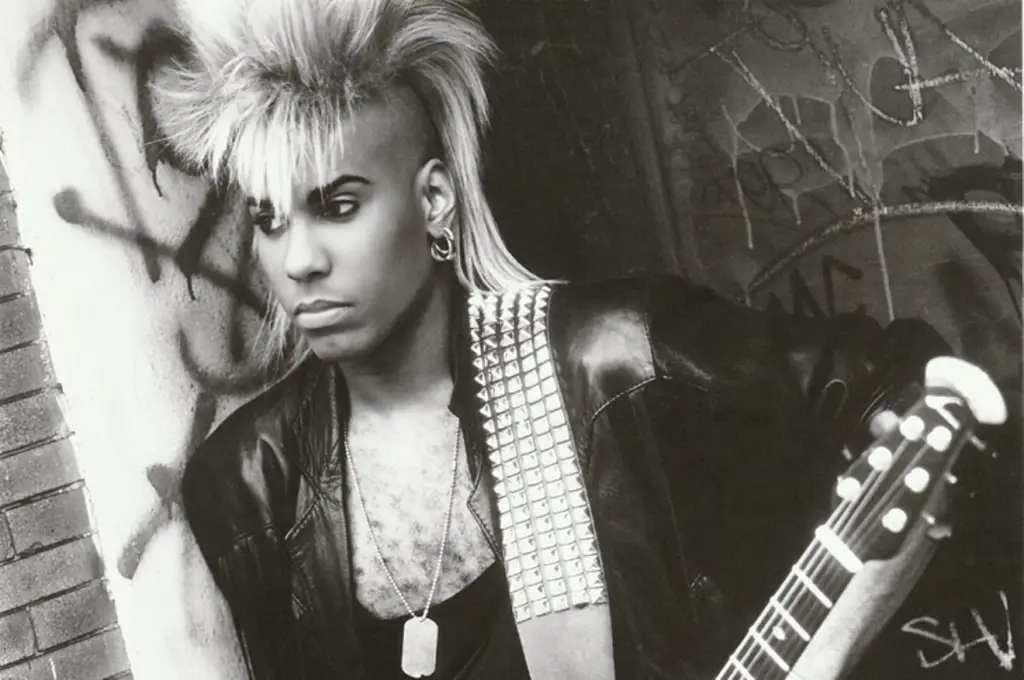
Andrew:
Take me through the writing and recording of your debut solo record, Drums Along the Mohawk.
Jean:
I had a lot of ideas built up from the time I first knew I wanted to make my own record. I had some songs before getting the record deal and once I was signed, I was full of ideas. I just went with it, playing most of the instruments myself – sometimes all – and laid down what I felt. Being in Polar Studios, which was owned by ABBA in Sweden, was also very inspirational for my writing and creating the music.
Andrew:
You were critical to the sound and end-product in regards to The Ramones’ albums Animal Boy, and Brain Drain. How did you begin working with the band?
Jean:
We had been friends since The Plasmatics days as it was a small circle who hung around at GBGB’s, Max’s Kansas City, and other Downtown clubs. Our manager, Gary Kurfirst, suggested we work together one day out of the blue, and we all thought it was a good idea. I became a fifth member of The Ramones during that time, took them into the studio, and started creating. I worked with them individually when writing, and sometimes with Joey and Dee-Dee together. It was interesting and challenging at the same time, trying to incorporate things that everyone liked to come up with the blend that became the end product.
Andrew:
You’re largely responsible for the production of “Pet Sematary,” which went on to be the Ramone’s highest-charting single. What was your approach?
Jean:
I didn’t quite right the song, but I produced and arranged it. I did contribute quite a bit to the melodies, etc., which I guess in a way, is writing. They had a basic idea, which I took and started laying down the parts until it started making sense to me. I knew we had to create something great, and there was a lot of pressure from the film company, director, my manager, and the label. In the end, I think we did a good job and I’m very proud that it became their highest-charting single.
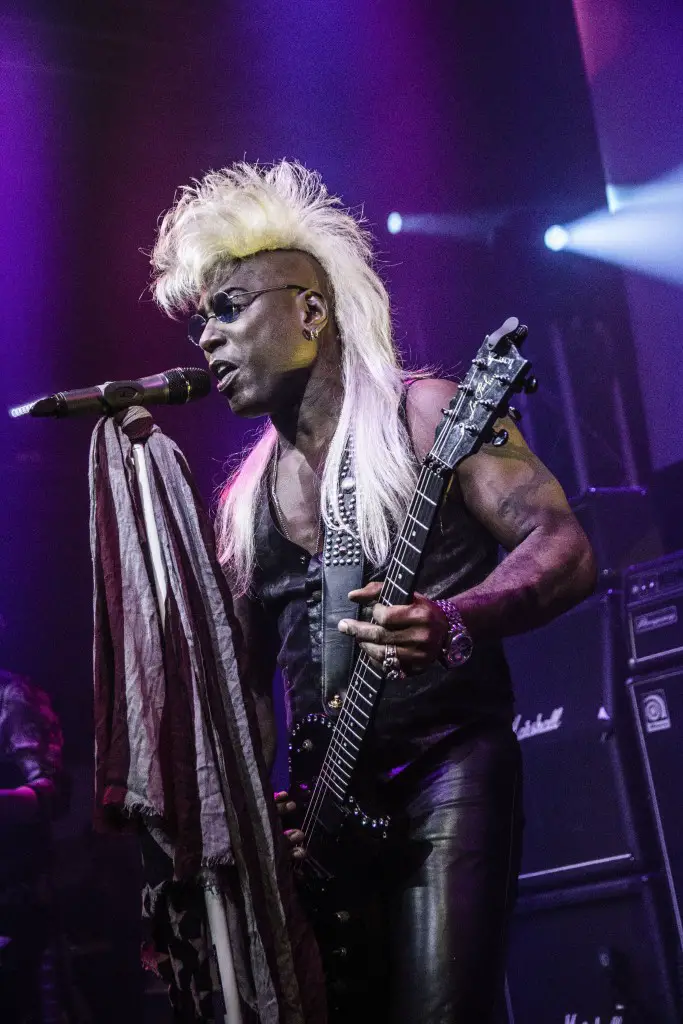
Andrew:
Throughout the 80s and 90s, so many popular songs are attributed to your songsmith, which begs the question, what led you to allow others to record those tracks as opposed to holding them back for yourself and your own albums?
Jean:
Well, I think that is a bit of an exaggeration, but I do appreciate you feeling that way! I always kept the two separate and songs that I would write for or with others, except for a few exceptions, were usually specifically written for that artist, as opposed to songs that I wrote for my own albums.
Andrew:
Moving forward, take me through the founding of Voodoo Island Entertainment. From the beginning, what were your goals, and how have those goals changed as you’ve moved forward?
Jean:
I formed Voodoo Island Entertainment to house different, but simultaneous careers that I had in mind. I always wanted to have independent careers as an artist, producer, songwriter, and executive. This hasn’t changed much, except for adding TV and film work to the equation. Voodoo Island was and still remains the umbrella company for these different entities.
Andrew:
How about Crown of Thorns? It’s been a number of years since the group’s last release. Where do things stand presently?
Jean:
When I was offered a solo deal by Jimmy Lovine, I was at a certain place head-wise and wanted to form a group. I had been in touch with some musicians, Tony Thompson, one of the world’s best drummers, and Micki Free, so I decided to take that deal and turn it into my Crown of Thorns project. At that point, Interscope was OK with it and I got Paul Stanley and Gene Simmons involved. I’ve decided to focus everything toward what’s had the most success for me, which was my solo career. My band projects were really an extension of me solo anyway, so I’m not sure when, or if I’ll make another Crown of Thorns record, but I will be making another album in the near future.
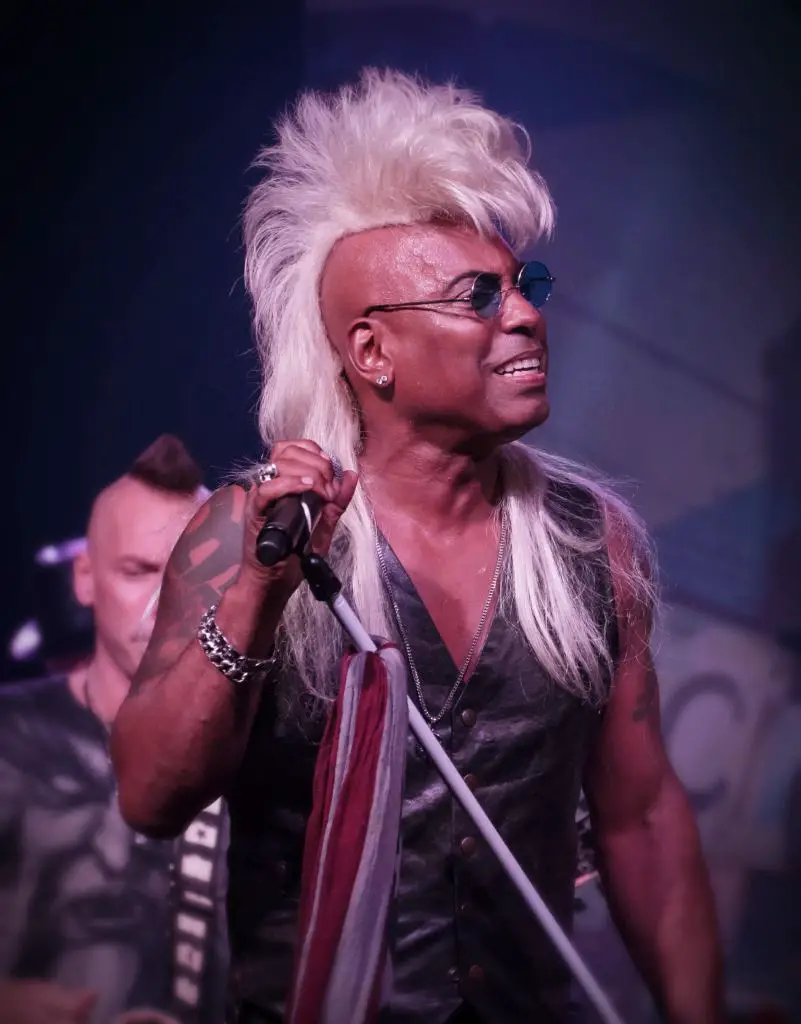
Andrew:
Circling back to The Plasmatics, as you know, we lost Wendy O. Williams in 1998. Wendy was a unique personality, and was extremely talented, while also being very polarizing as well. If you can, speak about your time working with Wendy as a person, and bandmate. Retrospectively, how can we measure her influence?
Jean:
As I had mentioned before, I was always moved by her and her overall attitude towards rock ‘n’ roll. I guess all the different things I’ve done, and the people I’ve worked with have been a bit of an influence on me. As far as her influence on the world, I think it was monumental. Many artists today I believe were influenced by her. Miley Cyrus on her last release, really made it obvious. I feel she’s made many contributions to music across different genres.
Andrew:
Last one. You’ve just alluded to new music. With that being said, what’s next for you in all lanes, Jean?
Jean:
I’m writing songs for a new album at present and plan to have something out this year. My book, Bet My Soul on Rock ‘n’ Roll: Diary of a Black Punk Icon, just came out, which I’ve been promoting and I’m proud to have completed. I have two songs coming out with a well-known German punk band, Lustfinger. I also have two songs, one co-written by Paul Stanley on the latest Lordi album, which is one of seven simultaneous albums they released – which is groundbreaking. I’ll just keep on rockin’ until I can’t rock anymore!
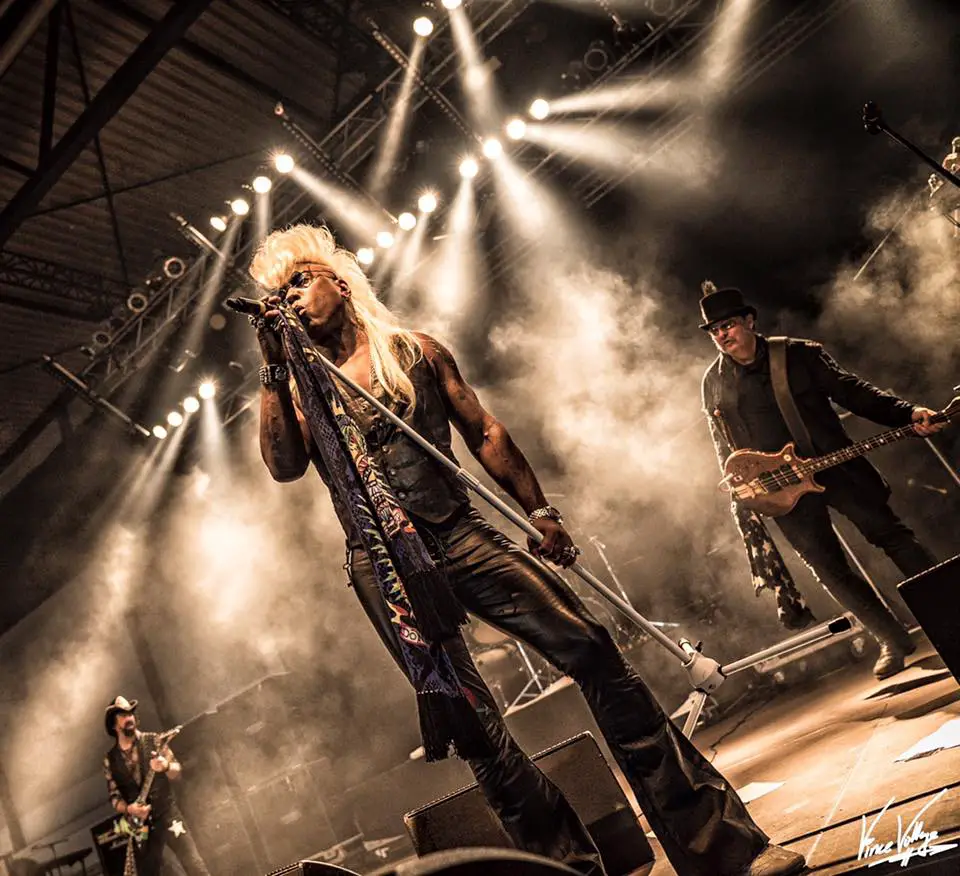
– Andrew Daly (@vwmusicrocks) is the Editor-in-Chief for www.vwmusicrocks.com and may be reached at andrew@vinylwriter.com
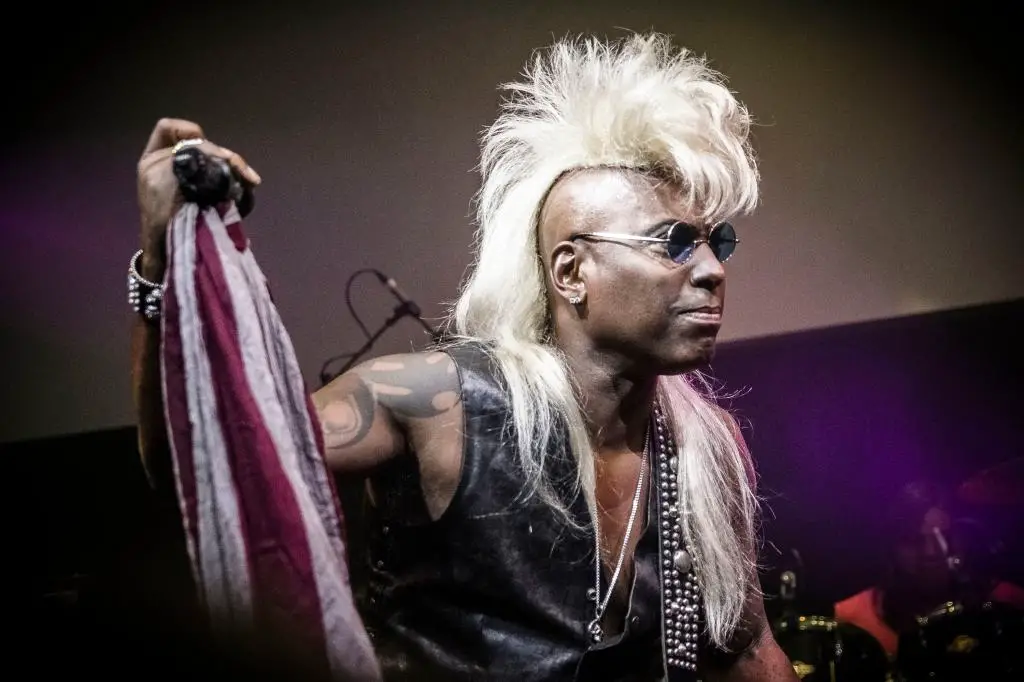




Leave a Reply